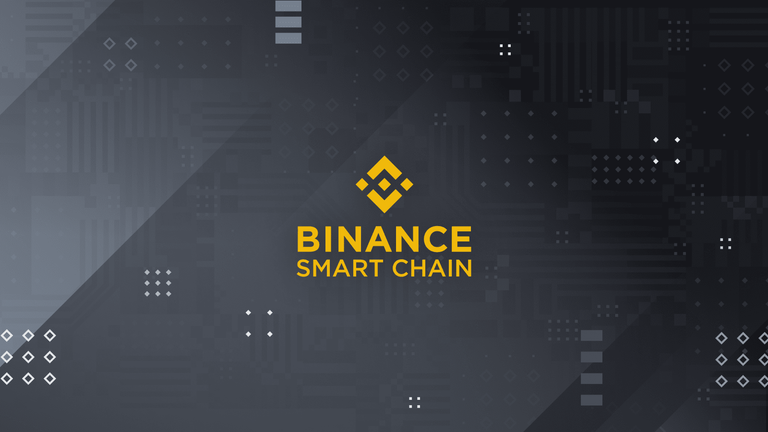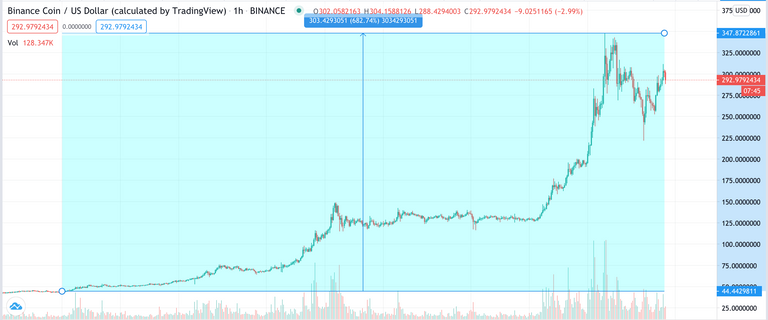
The Ethereum Blockchain
Ethereum became the worlds 2nd largest cryptocurrency but 1st in utility. Most platforms and protocols are developed on the ethereum blockchain and a large percentage of new coins are issued as ERC-20. What this resulted in, was a massive spike in the "gas" fees or transaction cost associated with the blockchain.
The Ethereum blockchain utilizes a Proof-of-work model, and the "gas" fees collected are paid to the miners for their efforts in securing the blockchain. There's been a lot of discussion recently behind these surging "gas" fees and several people including myself have written articles detailing the issues that could result from continued outrageous fees. There are already several coins described as "ethereum killers" whose value is rising exponentially right now. The main argument for these alternatives is that the transaction cost is significantly cheaper.
Binance Smart Chain

One platform that is benefiting massively from the boycott of Ethereum is Binance Smart Chain (BSC). The Binance Coin (BNB) surged 682% in the past 21 days from $40 to $350. BNB is used to cover the transaction costs on BSC in the way ETH is used to cover transaction costs for ERC-20 tokens.
I've seen a lot of praise for BSC and I agree that yes, the transaction costs are significantly cheaper. Multiple protocols that are developed on BSC have seen their TVL move from millions to billions. One of these, autofarm.network saw an increase in TVL from $50 million to now $1.8 billion.
Is It Better? Or Just Cheaper?
The surge in ETH "gas" fees has been multiplied by the rise in price of ETH. These fees are measured in gwei, which is a unit of ETH. I would say, paying 40 gwei for a transaction would be low. Back when ETH was $100, a transaction fee of 40 gwei would be around $0.20. Now that ETH is $2,000 that same transaction fee would be about $3. These fees are for a simple ETH transfer, now factor in interactions with smart contracts and the fees are up to $40-$50.
Comparing this to BSC, a transfer cost around 0.0015 BNB and interacting with a smart contract is around 0.03 BNB. Let's do the math on these.
At BNB = $40
Transfer: 0.0015 BNB = $0.06
Smart Contract: 0.03 BNB = $1.20
At BNB = $350
Transfer: 0.0015 BNB = $0.52
Smart Contract: 0.03 BNB = $10.5
Now, what if BNB got to $1,000
Transfer: 0.0015 BNB = $1.50
Smart Contract: 0.03 BNB = $30
So looking at these numbers, transactions on BSC are only cheaper because BNB cost's less. If BNB were to surge to the price of ETH, we'd start to see the same issue of high transaction fees. To combat this, there would have to be some scaling solutions that would reduce the required BNB per transaction.
I'm sitting on the sidelines, waiting to see what new developments arise in cryptocurrency to mitigate these transaction fees. I like ETH, due to a massive majority of platforms existing on the blockchain but also cannot afford to pay the "gas" fees. I hope these issues are settled with the released of ETH 2.0.
What platforms are you using that offer cheap transaction fees? I'm always looking for new DeFi opportunities so share any that you might be using.
Posted Using LeoFinance Beta